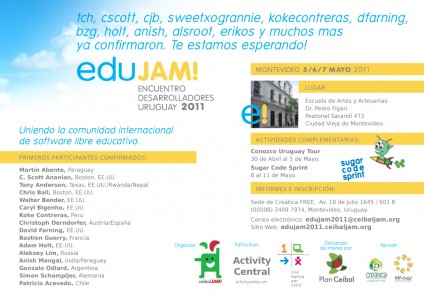By Antonio M. Battro, OLPC’s Chief Education Officer
Jeffrey James wrote a critique of OLPC last year, proposing a balanced pattern of “sharing computers” among children (say 5 children per computer, in the US or the UK) instead of the olpc “one to one” model – one laptop per child (and per teacher). As an alternative to olpc, James proposes that “the number of students per laptop stands in roughly the same ratio as the difference in per capita incomes between the rich and the poor country” (p. 385). In his view, the OLPC idea to persuade the developing countries to exceed the standards of shared computers of developed countries seems “utterly perverse” (p. 386).
It seems that his reasoning will fail if we substitute mobile phones for laptops. We don’t frequently share mobile phones, and in many poor countries their number exceeds James’s predictions about ratios of income and information and communication technologies in the hands of people. It seems difficult to accept the universality of his model about “sharingâ€, because laptops, tablets and mobile phones are rapidly converging in new hybrids.
On the other side, his ideas for successful low-cost technology sharing are not clear. One of his options, for instance, is “to purchase Intel’s Classmate computer at a similarly low price and let [them] be shared by as many students as is thought desirable†(p.389). In Argentina, where the Classmate has been most widely adopted, the national government is deploying some 3 million Classmates to cover the whole population of students and teachers of the secondary public schools in the country, on a one to one basis – an idea first proposed by OLPC some 5 years ago. It would be interesting to know the current state of affairs of other options he references (Simputer, NComputing, sharing multiple mice). However the quoted references are from 2006 and 2008, and 3-5 years is a long time in the digital era.
From the point of view of psychology and education, some comments about “teaching†need careful revision. First, in his paper James never speaks of the need to give laptops to the teachers, despite the significant mass of teachers in the world. On the contrary, OLPC programs start in every country by giving a laptop per teacher and providing corresponding teacher training. We know that a) “digital skills†develop in stages from the very early ages, as a second language (Battro & Denham, 2007) and b) most teachers didn’t have the opportunity to early access to this new global environment in the poor and developing countries.

